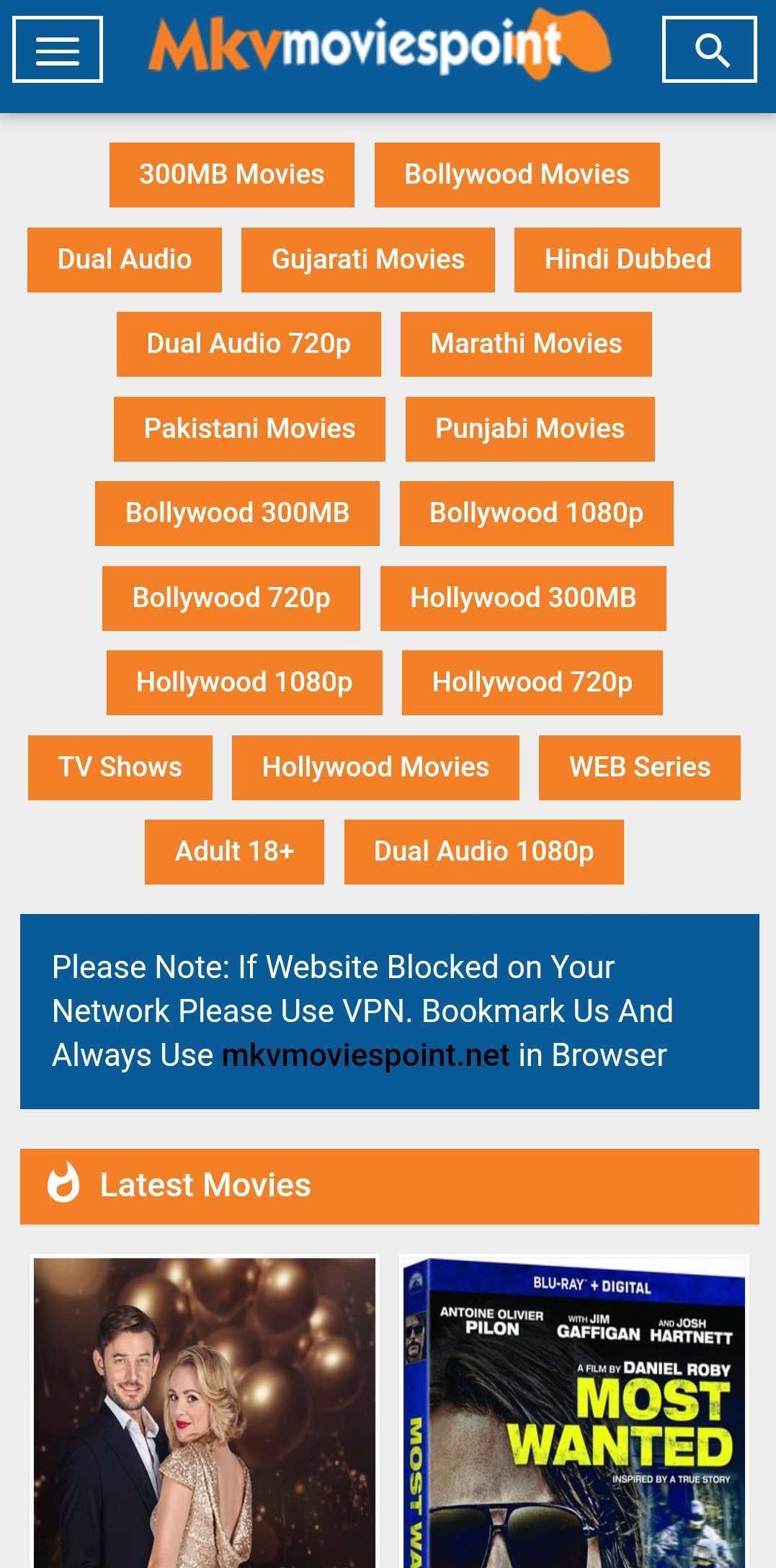As the world of digital media continues to evolve, the MKV format has emerged as one of the most versatile and widely-used video containers. MKV, short for Matroska Video, has become the go-to choice for many users due to its advanced features and compatibility. Whether you're downloading movies from platforms like MKVMoviesPoint or simply exploring the benefits of this format, understanding MKV is essential for anyone interested in high-quality video playback.
In this article, we will delve into the intricacies of the MKV format, exploring its advantages, drawbacks, and how it compares to other formats. By the end of this guide, you'll have a comprehensive understanding of why MKV is a preferred choice for video enthusiasts and professionals alike.
Whether you're a casual viewer or someone who works extensively with multimedia files, this article will provide valuable insights into the MKV format, ensuring you make informed decisions about your media consumption and management.
Read also:Boxrec Mike Tyson The Undisputed Legacy Of Iron Mike
Table of Contents
- Introduction to MKV Format
- History of MKV Format
- Key Features of MKV Format
- Comparison with Other Video Formats
- Benefits of Using MKV Format
- Downloading MKV Movies
- Playing MKV Files
- Converting MKV Files
- Security Concerns with MKV Files
- The Future of MKV Format
Introduction to MKV Format
The MKV format, short for Matroska Video, is a popular multimedia container that can hold an array of audio, video, picture, and subtitle tracks within a single file. This flexibility makes MKV an ideal choice for many users who demand high-quality playback and seamless integration of multiple media types.
What is MKV?
MKV is an open-standard free container format that supports various types of video and audio codecs. Unlike other formats like MP4 or AVI, MKV offers greater flexibility and compatibility with modern codecs, ensuring superior quality and functionality.
One of the standout features of MKV is its ability to include multiple audio and subtitle tracks, making it a favorite among international audiences who require subtitles in different languages. This versatility has contributed significantly to its widespread adoption.
History of MKV Format
The development of MKV began in 2002 by the Matroska development team. The name "Matroska" is derived from the Russian word "matryoshka," which refers to a set of nested dolls. This name reflects the container's ability to hold multiple types of media within a single file.
Evolution of MKV
Since its inception, MKV has undergone several updates and improvements, enhancing its capabilities and usability. Initially designed as a simple container, MKV has evolved to support advanced features such as chapters, metadata, and advanced subtitle formats.
Today, MKV is widely recognized as one of the most robust and versatile video formats, supported by a vast array of devices and software applications.
Read also:Greg Gutfeld Illness Exploring The Health Challenges Of A Comedic Genius
Key Features of MKV Format
MKV offers a host of features that set it apart from other video formats. Below are some of the key features:
- Multi-track Support: MKV allows users to include multiple audio and subtitle tracks within a single file.
- Advanced Subtitle Formats: Supports advanced subtitle formats such as ASS and SRT, providing better control over subtitle appearance and synchronization.
- High Compatibility: MKV is compatible with a wide range of devices and software, ensuring seamless playback across different platforms.
- Open-Source: Being an open-standard format, MKV is free to use and modify, making it accessible to developers and users alike.
Comparison with Other Video Formats
While MKV is highly regarded, it's important to compare it with other popular video formats to understand its strengths and limitations. Below is a comparison with MP4 and AVI:
Comparison Table
| Feature | MKV | MP4 | AVI |
|---|---|---|---|
| Multi-track Support | Yes | Limited | No |
| Advanced Subtitle Formats | Yes | No | No |
| Compatibility | High | Very High | Medium |
| Open-Source | Yes | No | No |
As shown in the table, MKV offers superior features compared to MP4 and AVI, but its compatibility is slightly lower than MP4, which is universally supported by most devices.
Benefits of Using MKV Format
Choosing MKV as your preferred video format comes with numerous benefits:
- Enhanced Quality: MKV supports advanced codecs, ensuring superior video and audio quality.
- Flexibility: The ability to include multiple tracks and advanced subtitles makes MKV highly versatile.
- Customization: Users can customize playback options, such as selecting preferred audio or subtitle tracks.
- Future-Proof: Being an open-standard format, MKV is continuously updated to support new technologies and features.
Downloading MKV Movies
One of the most popular platforms for downloading MKV movies is MKVMoviesPoint. This platform offers a wide selection of movies in MKV format, catering to users who prioritize quality and functionality.
Tips for Downloading MKV Movies
When downloading MKV movies, it's essential to ensure the source is reliable and legal. Below are some tips:
- Verify the legitimacy of the download platform.
- Check file sizes and resolutions to ensure quality.
- Download from platforms that offer verified files to avoid malware.
Playing MKV Files
Playing MKV files requires compatible software or devices. Some of the most popular players include VLC Media Player, KMPlayer, and MPC-HC.
Best Software for MKV Playback
Below are some of the best software options for playing MKV files:
- VLC Media Player: A free and open-source player that supports a wide range of formats, including MKV.
- KMPlayer: Known for its advanced features and high compatibility with MKV files.
- MPC-HC: A lightweight player that offers excellent performance for MKV playback.
Converting MKV Files
While MKV is a versatile format, there may be instances where you need to convert it to another format for compatibility reasons. Below are some popular tools for converting MKV files:
Popular Conversion Tools
Here are some recommended tools for converting MKV files:
- HandBrake: A free and open-source tool that allows you to convert MKV files to other formats like MP4.
- Freemake Video Converter: Offers a user-friendly interface and supports a wide range of formats.
- Online Converters: Websites like CloudConvert provide easy online conversion options for MKV files.
Security Concerns with MKV Files
While MKV files are generally safe, downloading from unverified sources can pose security risks. It's crucial to ensure that the files you download are free from malware and viruses.
Best Practices for Safe Downloads
Follow these best practices to ensure safe downloads:
- Download from trusted and verified platforms.
- Scan downloaded files with antivirus software before playback.
- Avoid clicking on suspicious links or downloading from unofficial sources.
The Future of MKV Format
As technology continues to advance, the future of MKV looks promising. With ongoing updates and improvements, MKV is likely to remain a dominant force in the world of digital media.
Developers are continuously working on enhancing MKV's capabilities, ensuring it stays ahead of the curve in terms of features and compatibility. This commitment to innovation ensures that MKV will continue to be a preferred choice for users worldwide.
Conclusion
In conclusion, the MKV format offers a host of advantages that make it an ideal choice for video enthusiasts and professionals alike. From its advanced features to its compatibility with modern codecs, MKV has proven itself as a versatile and reliable format.
We encourage you to explore the world of MKV further by downloading and experimenting with MKV files. If you have any questions or feedback, feel free to leave a comment below. Don't forget to share this article with others who may benefit from understanding the MKV format.
Stay tuned for more informative articles on digital media and technology. Thank you for reading!


